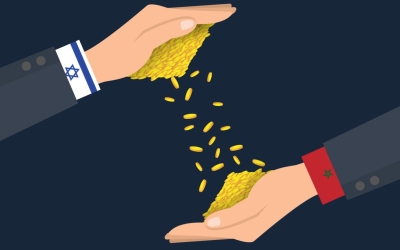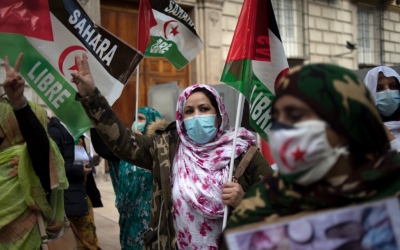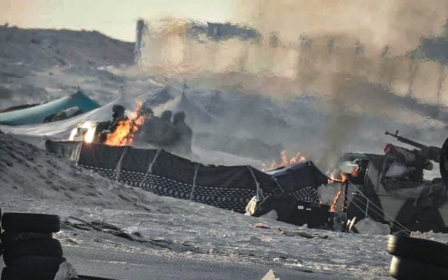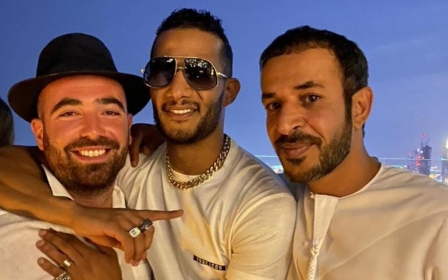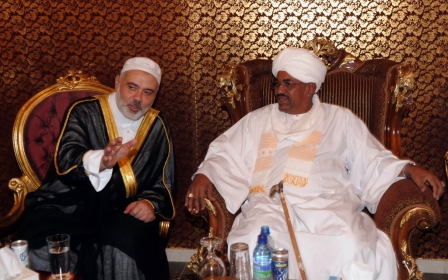Israel and Morocco to normalise ties as US recognises Rabat's claim to Western Sahara
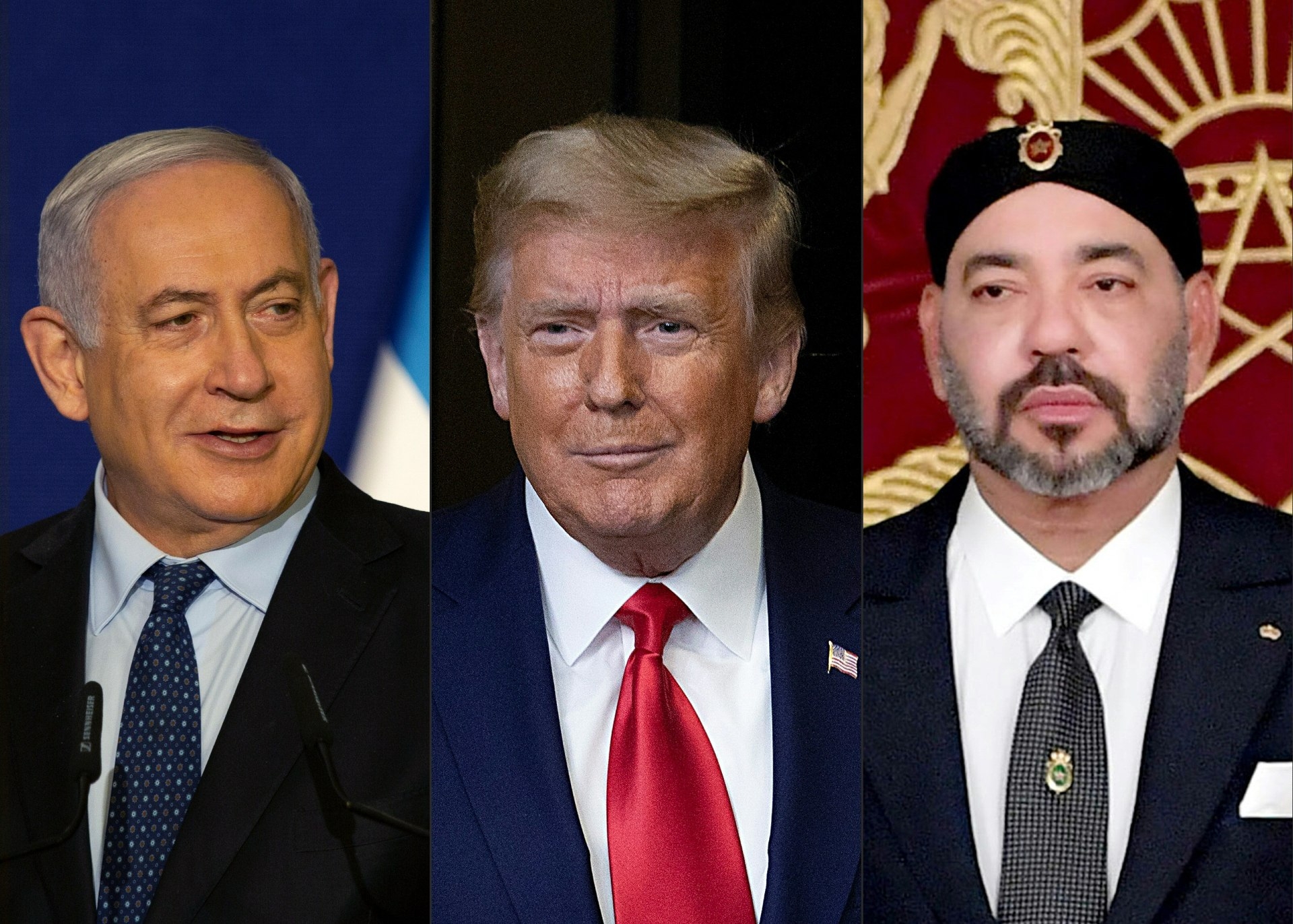
Israel and Morocco will normalise ties and the United States is to recognise Western Sahara as part of the North African kingdom, US President Donald Trump announced on Thursday.
Morocco becomes the fourth Arab country to establish full diplomatic ties with Israel in four months, following the UAE, Bahrain and Sudan.
“Today, I signed a proclamation recognizing Moroccan sovereignty over the Western Sahara. Morocco's serious, credible, and realistic autonomy proposal is the ONLY basis for a just and lasting solution for enduring peace and prosperity!” Trump tweeted.
In a separate tweet, the president then added: “Our two GREAT friends Israel and the Kingdom of Morocco have agreed to full diplomatic relations – a massive breakthrough for peace in the Middle East!”
Israeli Prime Minister Benjamin Netanyahu described the deal as "another great light of peace".
The Polisario Front, an independence movement from Western Sahara, a disputed desert territory, said it "regrets highly" Trump's decision but will continue its struggle.
Morocco's Royal Court said King Mohammed VI had called Palestinian President Mahmoud Abbas and reiterated his commitment to the two-state solution to the Israel-Palestine conflict.
Previous relations
Though Israel and Morocco have not had full diplomatic ties since the former's founding in 1948, they have nonetheless shared relations and intelligence.
Morocco and Israel began low-level ties in 1993 after the latter reached a peace agreement with the Palestinian Liberation Organisation as part of the Oslo Accords. But Rabat suspended relations with Israel after the outbreak of the Second Palestinian Intifada in 2000.
Morocco described Thursday's announcement as the "resumption" of diplomatic relations with Israel.
Around half a million Moroccan Jews live in Israel, and Israelis are known to occasionally visit the kingdom, and Netanyahu said he expects direct flights to begin soon.
In recent years, King Mohammed VI has encouraged the restoration and preservation of his country's Jewish heritage, which Moroccan Jewish Israelis have participated in.
Moroccan activists have highlighted frequent steps towards the normalisation of relations with Israel, which the government has denied or remained silent about.
In February, Israeli media reported that Netanyahu had lobbied the United States to recognise Moroccan sovereignty over the Western Sahara in exchange for Rabat taking steps to normalise ties with Israel.
A few months later, Amnesty International revealed that Israeli spyware was used to target Moroccan activists.
Territorial claims
Jared Kushner, Trump’s son-in-law and senior adviser, confirmed that recognition of Moroccan sovereignty over the Western Sahara is linked to kingdom’s normalisation with Israel.
“It also could possibly break the logjam to help advance the issues in the Western Sahara where we want the Polisario people to have a better opportunity to live a better life,” Kushner told reporters on Thursday.
“The president felt like this conflict was holding them back as opposed to bring it forward. This recognition will strengthen America’s relationship with Morocco.”
Western Sahara, a former Spanish colony, was claimed by Morocco in 1957 and is believed to have significant offshore oil reserves and mineral resources.
Its indigenous population has fiercely rejected Moroccan control, however, and between 1975 and 1991 the Polisario Front fought an insurgency against Rabat's presence.
Polisario estimates the indigenous population of Western Sahara to be between 350,000 and 500,000 and has long called for their right to a referendum on independence, something that has also been promised by UN resolutions.
Polisario has repeatedly accused Morocco of exploiting the region’s natural resources while half of its population await a referendum in camps and in exile.
Last month, Moroccan forces and Polisario fighters clashed over a protest blocking a highway into Mauritania, with the Sahrawi movement declaring the 1991 ceasefire over.
Morocco's Royal Court said the US will open a consulate in the Western Sahara. Last month, Bahrain, which normalised ties with Israel in September, also said it was opening a consulate in the territory.
Trump's announcement was denounced by Sahrawis.
"The Polisario and Sahrawi government condemn in the strongest terms the fact that outgoing American President Donald Trump attributes to Morocco something which does not belong" to the country, said the Sahrawi information ministry in a statement to AFP.
Ahmed Ettanji, a journalist and activist in Western Sahara's Laayoune, told Middle East Eye that the move was a blatant tit-for-tat strategy.
"It's like an exchange: supporting the so-called Moroccan sovereignty over Western Sahara in exchange for political recognition of Israel," Ettanji said.
'We were shocked when we saw Trump's tweet. At the same time, it's not something new. As a Sahrawi, I've seen the US back Morocco for many decades'
- Ahmed Ettanji, Sahrawi journalist and activist
"We were shocked when we saw Trump's tweet. At the same time, it's not something new. As a Sahrawi, I've seen the US back Morocco for many decades. But there is some hope that the next administration will be different."
Sahrawi activist Mohamed Elbaikam said the announcement had been anticipated.
"We believe that this position is an attempt to bypass international law and all its principles," he told MEE.
"We believe that the next US administration led by [Joe] Biden will correct the American position, just as the American people will not accept it."
Mahmoud Lemaadel, a Sahrawi citizen journalist, told MEE Trump's announcement was like "the blind leading the blind".
US Congresswoman Betty McCollum, an outspoken advocate for Palestinian human rights, also denounced Trump's move to recognise Morocco's claim over Western Sahara.
"I condemn Trump’s unilateral recognition of Moroccan sovereignty over the Western Sahara in exchange for Morocco’s diplomatic recognition of Israel," McCollum wrote on Twitter on Thursday. "The Sahrawi people have an internationally recognized right to self-determination that must be respected."
Jim Inhofe, a senior Republican Senator who supports the people of Western Sahara's push for self-determination, accused Trump of "trading the rights of a voiceless people" to secure the Morocco-Israel deal.
"Today’s White House announcement alleging Morocco’s sovereignty over Western Sahara is shocking and deeply disappointing. I am saddened that the rights of the Western Saharan people have been traded away," Inhofe said in a statement.
War on Want, an anti-poverty charity based in London, warned that the move was "not about peacebuilding".
"It’s a cynical attempt to rally repressive regimes around some of their most egregious policies: military occupation and human rights abuse," Ryvka Barnard, the group's senior campaigner, said in a statement on Thursday.
"President Trump calls this announcement a 'breakthrough', but it comes on the back of the recent Moroccan breach of a decades-old ceasefire in occupied Western Sahara, as well as Israel’s ongoing expansion of illegal settlements, destruction of Palestinian homes and structures, and lethal violence against Palestinian civilians, including children," Barnard said.
“This move smacks of the colonial mindset that carved up the world at the expense of its inhabitants & seeks to normalise injustice."
Middle East Eye propose une couverture et une analyse indépendantes et incomparables du Moyen-Orient, de l’Afrique du Nord et d’autres régions du monde. Pour en savoir plus sur la reprise de ce contenu et les frais qui s’appliquent, veuillez remplir ce formulaire [en anglais]. Pour en savoir plus sur MEE, cliquez ici [en anglais].


